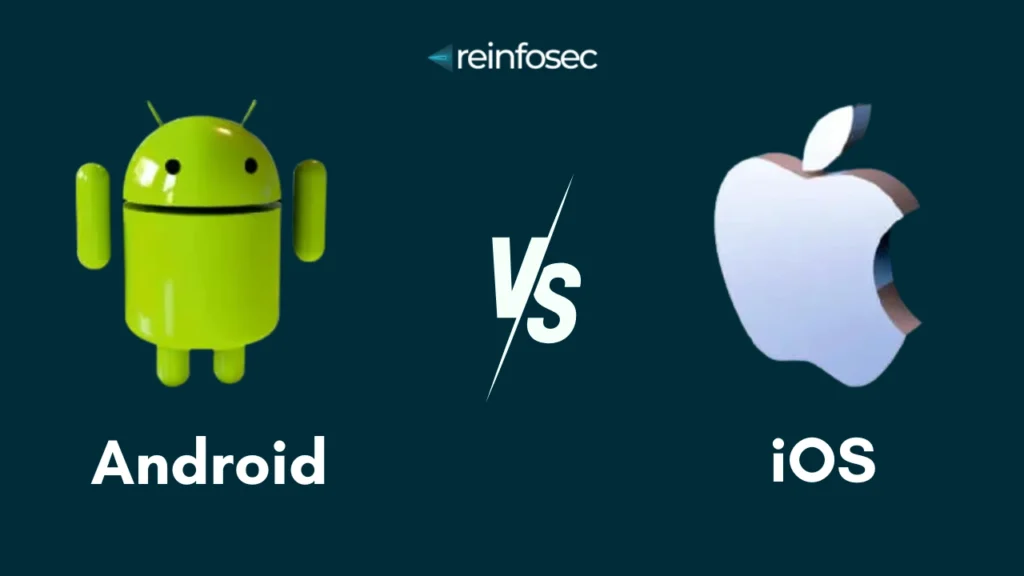Smartphones have become an important part of our lives. They help us stay connected, work, shop, and entertain ourselves. With millions of apps available on app stores, the question of app safety has become critical. We rely on apps for almost everything, from online banking and shopping to communicating with friends and colleagues. But with this convenience comes the challenge of ensuring our personal data and privacy are secure.
People often hear that iOS is more secure than Android, but why is that the case? What makes iOS apps seem safer, and are Android apps really as risky as some claim? These questions are important because understanding them can help you make informed choices about your smartphone and app usage. In this blog, we will explore whether Android apps are safe, how they compare to iOS apps, and what steps you can take to protect yourself, regardless of the platform you use.
How Safe Are Android Apps?
Android apps are widely used because Android is the most popular operating system in the world. The Google Play Store hosts millions of apps that cater to different needs. However, the open nature of Android makes it a frequent topic of debate when it comes to security.
Here are some key points about Android app safety:
1. Open Ecosystem
- Android is an open-source platform. This means developers can customize the operating system and create apps freely. While this fosters innovation, it also opens doors for malicious apps.
- Google has security measures in place, such as Play Protect, which scans apps for harmful behavior. But some harmful apps still make their way into the Play Store.
2. Third-Party App Stores
- Unlike iOS, Android allows users to download apps from third-party app stores or directly from websites. These apps are not always scanned for safety, which can make users vulnerable to malware and viruses.
3. Permissions
- Android apps often request permissions for various features, like access to contacts, location, or camera. Some apps misuse these permissions, which could lead to privacy issues.
- It’s important to review app permissions carefully before installing.
4. Regular Updates
- Android app developers frequently release updates to fix bugs and improve security. However, not all users update their apps regularly, leaving them exposed to vulnerabilities.
How Safe Are iOS Apps?
Apple’s iOS is often praised for its strong focus on security. Many people believe that iOS apps are safer than Android apps, and here’s why:
1. Closed Ecosystem
- iOS is a closed-source operating system. This means Apple tightly controls the software and hardware of its devices. Only apps approved by Apple can be downloaded from the App Store.
- The strict review process ensures that apps meet Apple’s security and quality standards.
2. No Third-Party App Stores
- Unlike Android, iOS does not allow users to download apps from third-party app stores. This reduces the chances of installing malicious apps.
3. Privacy Features
- iOS apps are designed with privacy in mind. For example, Apple introduced features like App Tracking Transparency, which lets users control how apps track their data.
- Permissions on iOS are more limited, and apps cannot access certain features without explicit user consent.
4. Timely Updates
- Apple ensures that iOS updates are available for all supported devices at the same time. These updates often include important security patches.
Which Is Safer: Android or iOS?
Both Android and iOS have their strengths and weaknesses when it comes to security. While iOS is generally considered more secure due to its closed ecosystem and strict app review process, Android is not necessarily unsafe. With proper precautions, Android users can enjoy a secure app experience as well.
The perception that iOS is more secure than Android comes down to several factors:
- App Approval Process: Apple’s strict review process reduces the risk of malicious apps. Google’s Play Store, while also monitored, has a more lenient review process.
- Software Updates: Apple provides timely updates to all users, ensuring everyone has the latest security patches. Android updates depend on the manufacturer, which can lead to delays.
- No Sideloading: iOS does not allow sideloading of apps, whereas Android users can install apps from outside the Play Store.
While iOS does have stronger controls, it’s not completely immune to security threats. No system is 100% secure.
What Can You Do to Stay Safe?
Regardless of whether you use Android or iOS, you can take steps to ensure your safety while using apps. Here are some tips:
For Android Users:
- Download Apps Only from the Google Play Store: Avoid third-party app stores unless absolutely necessary.
- Check App Permissions: Only grant permissions that are necessary for the app to function.
- Keep Apps Updated: Regular updates fix bugs and address security vulnerabilities.
- Install Antivirus Software: Many antivirus apps can help detect and block malware.
- Enable Play Protect: This built-in feature scans your apps for harmful behavior.
For iOS Users:
- Download Apps Only from the App Store: Do not jailbreak your device to install apps from outside sources.
- Enable Automatic Updates: This ensures you always have the latest security patches.
- Review Permissions: Check what data your apps are accessing.
- Use Strong Passwords: Protect your Apple ID with a strong password and enable two-factor authentication.
Final Thoughts
App security depends not only on the operating system but also on how users handle their devices. Whether you use Android or iOS, always follow best practices to keep your data safe.
If you’re looking for expert advice on securing your applications or identifying vulnerabilities, consider exploring advanced vulnerability testing services to ensure your apps meet the highest security standards. Stay informed, stay secure, and enjoy the convenience of your smartphone without compromising safety.
For more insights on cybersecurity and protecting your digital assets, visit our website.

